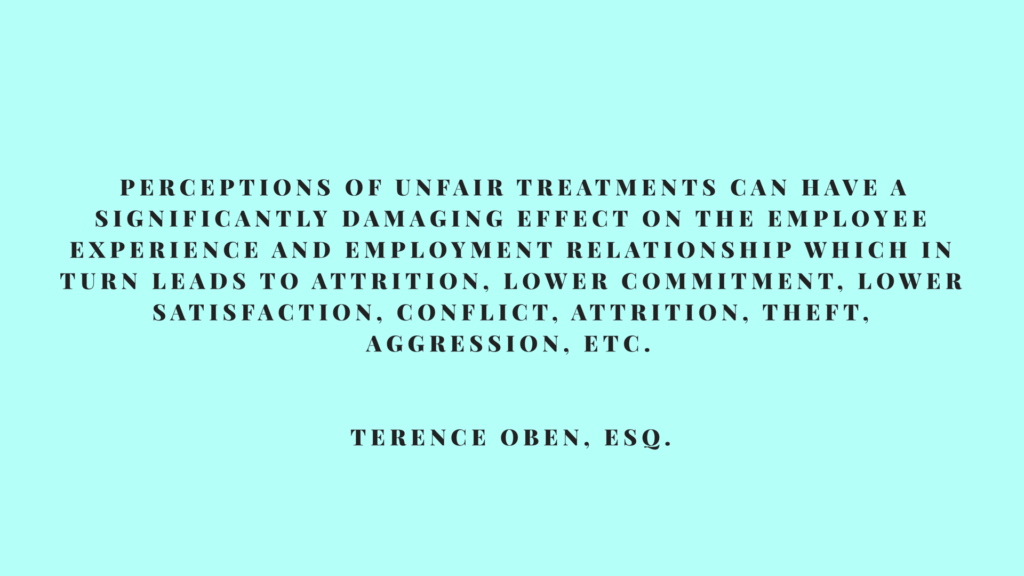Transforming Conflict Management and Resolution with a Peer Advisory Board (PAB) Program to Augment the Employee Experience and the Employment Relationship

From the frontlines to board rooms, leaders in today’s fluid operating environment are facing new and longstanding challenges in managing the multifaceted complexities of the employer-employer relationship.
As we observed in a recent article, our experience shows that the lack of adequate management and oversight is pervasive in all aspects of organizational management. Many are ineffective at managing their work force, and do not treat their employees fairly – leading to increasing litigation and enforcement actions to protect the rights of employees. Particularly regarding how fairly and equitably they deal with operations-related issues and contentious personnel issues like performance evaluations, harassment, dismissal, transfers, complaints and interpersonal conflict.
In a world that is becoming more volatile, uncertain, conflicted, and diverse, companies need to shift from reactive to proactive, cost-effective solutions that will deliver better outcomes for both employers and employees.
What modern leaders need is an option that offers both the assurances of due process and fairness while providing a quick and inexpensive means for resolving disputes. This article discusses the concept of ethical organizational due process and its applications in the Peer Advisory Board (PAB) program.
What is Ethical Organizational Due Process?
Organizational due process is the application of ‘due process’ protections of fairness to employee complaints and grievances as a means of ensuring justice for employees. This means that to deal fairly with employees, employers must have established procedures for dealing with personnel matters, and those procedures need to be administered consistently and fairly. This protects employee rights and interests by ensuring fair outcomes in decisions that affect their lives, as well as fairness in the procedures used to reach these decisions.
- The opportunity to be heard and the right to appeal. In the corporate context, fair hearing procedures with a meaningful internal appeal system is the corporate equivalent of due process. And the right to appeal a managerial decision is the clearest and most significant manifestation of a due process right, and a PAB Program is the most effective mechanism to do this.
What is the PAB Program?
The PAB is a dispute resolution procedure that provides employees an appeal mechanism to an internal group or panel of employees and managers for a final decision. In essence, it is the application of a jury-like system, where its members weigh evidence, consider arguments, and, after deliberation, vote independently to render a final decision. Through the PAB procedure, an employee may refer his or her grievance for a final decision to an internal group or panel—usually after first appealing to a higher level of management as a prerequisite.
- PAB reviews vary in name and uses. PAB reviews take many forms and can vary greatly depending on the organization, relevant statutory requirements, office-specific policies and practices, and go by various names, including peer review panels, employee problem-solving groups, as well as internal tribunals.
What’s the difference from current grievance processes?
What makes the PAB so revolutionary and different from other grievance processes is the independence of the PAB reviewers and their level of involvement. The goal of PAB reviews is to obtain an independent, third-party review which ensures the integrity and credibility of the decision and underlying intent that supports the decision. Thus, the PAB process is an effective alternative to all other internal dispute resolution procedures like open-door policies, TIPs hotlines, whistleblower channels, and ombudsmen.
What is the objective of a PAB review?
The ultimate goal of a PAB review is to enhance the quality and credibility of managerial decisions by ensuring that the basis and rationale underlying these decisions are sound and in accordance with the employer’s policies.
Why should you adopt a PAB Program?
Among other significant benefits for both employers and employees, a properly designed PAB Program helps drive overall improvement in the quality of the employment relationships in an organization. It is also essential in maintaining an organization’s credibility, supporting effective decision-making, building transparency and trust between employees and managers, and providing objective, unbiased reviews of managerial decisions.





0 Comments